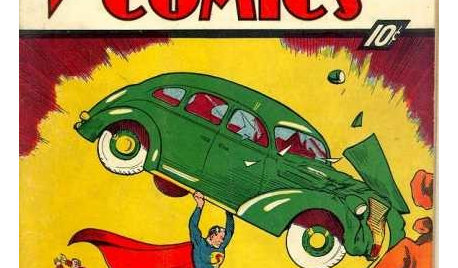How a financial professional lost his house
annkathryn
12 years ago
Related Stories

DECORATING GUIDESHow to Work With a Professional Organizer
An organizing pro can help you get your house together. Here's how to choose the right one and gain your own clutter-clearing skills
Full Story
WORKING WITH PROS6 Reasons to Hire a Home Design Professional
Doing a construction project without an architect, a designer or a design-build pro can be a missed opportunity
Full Story
MATERIALSAn Architect Shares His Go-To Materials
Aluminum doors, porcelain tiles, polished concrete. Here are the features and finishes this professional returns to time and again
Full Story
REMODELING GUIDESOne Guy Found a $175,000 Comic in His Wall. What Has Your Home Hidden?
Have you found a treasure, large or small, when remodeling your house? We want to see it!
Full Story
ORGANIZINGProfessional Tips for Organizing Your Clothes Closet
As summer draws to a close, get expert advice on editing and organizing your wardrobe
Full Story
KITCHEN DESIGN16 Practical Ideas to Borrow From Professional Kitchens
Restaurant kitchens are designed to function efficiently and safely. Why not adopt some of their tricks in your own home?
Full Story
KITCHEN DESIGNPro Chefs Dish on Kitchens: Paul Kahan Shows His Urban Sanctuary
Peek inside Kahan's newly redone home kitchen and learn what he considers most important for a cooking space
Full Story
CONTEMPORARY HOMESHouzz Tour: Designer Makes His Place Chic on a Dime
Thrifty finds, hand-me-downs and a bit of ingenuity result in a cozy and stylish home
Full Story
MOST POPULAR9 Real Ways You Can Help After a House Fire
Suggestions from someone who lost her home to fire — and experienced the staggering generosity of community
Full Story
REMODELING GUIDESContractor Tips: 10 Hats Your General Contractor Wears
Therapist, financial advisor, mediator — for the price of a single good contractor on your remodel, you're actually getting 10 jobs done
Full Story







akrogirl
LoveInTheHouse
Related Professionals
American Fork Architects & Building Designers · New River Architects & Building Designers · Providence Architects & Building Designers · Troutdale Architects & Building Designers · Arlington General Contractors · Catonsville General Contractors · Lincoln General Contractors · New Milford General Contractors · San Elizario General Contractors · Waldorf General Contractors · Winfield General Contractors · Green Valley Home Stagers · Wailuku Home Stagers · La Habra Interior Designers & Decorators · Ogden Interior Designers & Decoratorsncrealestateguy
brickeyee
jakkom
annkathrynOriginal Author
rafor
tishtoshnm Zone 6/NM
terezosa / terriks
logic
deegw
ncrealestateguy
chrisk327
rafor
Billl
jane__ny
brickeyee
LoveInTheHouse
Billl
cattyles
brickeyee
weedyacres
brickeyee
weedyacres
clg7067
brickeyee
azmom
weedyacres
Billl
brickeyee
feedingfrenzy
Billl
weedyacres
ncrealestateguy
C Marlin
Billl
stinky-gardener
brickeyee
LoveInTheHouse
Billl
stinky-gardener
wanj
annkathrynOriginal Author
brickeyee
mjlb
Billl
brickeyee
azmom
RooseveltL
brickeyee